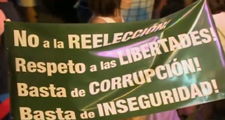Americans eager to weaken various limits on political power here at home should pay closer attention to news from abroad.
Around the globe, killing presidential term limits is high on the to-do list of aspiring presidents-for-life.
Autocrats also dislike the right of citizen initiative. Even when they abstain from trying to kill initiative rights altogether, they often seek outrageous restrictions on them, or even stoop to harassing petitioners and voters.
One such enemy of the people was Venezuelan strongman Hugo Chávez, now dead. Chávez was an equal-opportunity attacker of citizen rights. He expropriated businesses, bullied media, once even ordered soldiers to fire on anti-Chávez protesters (they refused). He also succeeded in eliminating presidential term limits.
In 2003, his government arranged for the public release of the names of Venezuelans who had signed a petition to recall Chávez. The names were stolen from the office charged with overseeing the petition drive and leaked to a pro-Chávez legislator, who then published them on his website. Many signers lost jobs, loans, and other opportunities controlled by the state.
American foes of term limits, initiative rights, and other constraints on concentrated power may think there’s no comparison. But every chipping away at protections against tyranny is dangerous.
While it is true that no single limit on power can substitute for all the cultural values and ideas that underlie our rights as free citizens, it is also the case that institutions and culture reinforce each other. The foundation of a building has more than one cornerstone.
This is Common Sense. I’m Paul Jacob.




